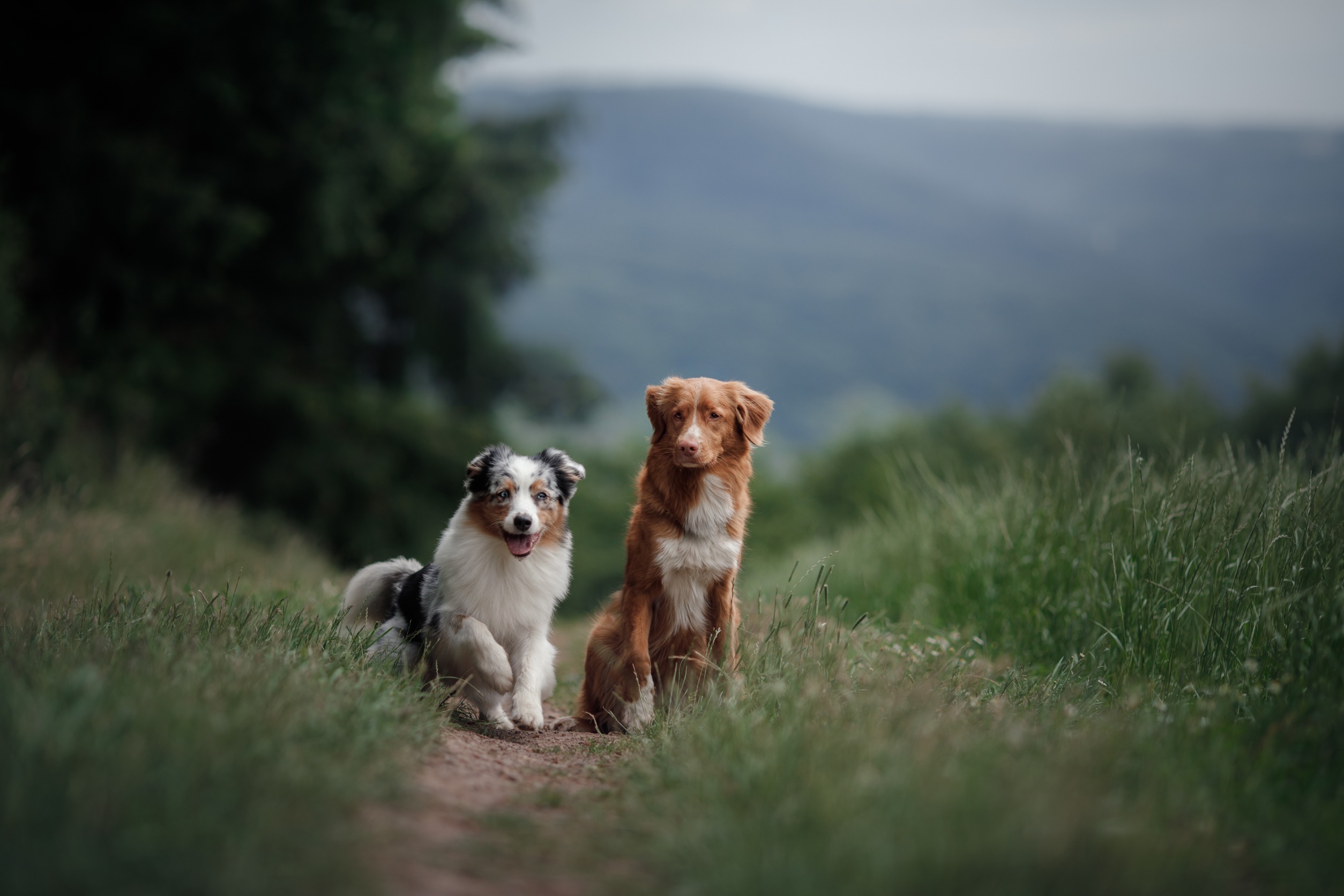BY THE OPTIMIST DAILY EDITORIAL TEAM
In a joyful and unique attempt to rewild an urban nature reserve in the picturesque town of Lewes, East Sussex, local dogs have been adorned with seed-filled backpacks to simulate the ecological role once served by wolves. This project, coordinated by the Railway Land Wildlife Trust and financed by Ouse Valley Climate Action, seeks to revitalize the landscape by utilizing dogs’ natural roaming habit to scatter wildflower seeds around the reserve.
Before going extinct in the UK around 1760, wolves traveled widely, unwittingly dispersing wildflower and grass seeds caught in their fur. This natural dispersal mechanism was critical to biodiversity and environmental health. Dylan Walker, the project manager, emphasized the importance of this natural process: “We’re really interested in rewilding processes, but they often involve reintroducing big herbivores like bison or wild horses. In a smaller urban nature reserve, it’s really hard to do those things.”
A 2019 project in Chile, where two ladies and their three dogs helped reseed areas damaged by wildfires, inspired this special method. Walker saw a similar opportunity when he noticed the deteriorating condition of a portion of the Lewes reserve caused by frequent foot traffic. “To replicate the effect that those animals have on the ecosystem, we aimed to utilize the vast number of dog walkers that are visiting the nature reserve daily,” he stated.
The natural legacy of wolves
Historically, wolves played an important role in sustaining healthy ecosystems by dispersing plant seeds across long distances. As they traveled miles each night, seeds caught in their fur disseminated far from their original environments, assisting in the establishment of new plant colonies and fostering biodiversity. Without wolves, these natural seed dispersion systems are no longer in place, making it difficult to maintain diverse plant life in many regions.
Pioneering rewilding efforts
The Railway Land Wildlife Trust’s project is a trailblazing endeavor in the UK, engaging local dogs to fill this critical ecological niche. The procedure is straightforward but effective: dog walkers can obtain seed-filled backpacks from staff members, and while the dogs explore the reserve, seeds are released via small holes in the packs. “We mixed the seed with sand not only to help the seed go further, but it also proves to be really helpful in allowing us to track where the dogs are depositing the seeds as well,” Walker explained.
This strategy takes advantage of dogs’ innate curiosity and activity, allowing seeds to reach regions that humans may find difficult to access. The canines’ larger distribution pattern makes the scattered seeds more likely to germinate and survive.
Community engagement and ecological impact
The project’s success is dependent on community involvement, and local dog owners have been overwhelmingly supportive. Cressida Murray, a participant, shared her enthusiasm: “I signed up because it sounded like such a good fit. I was asked to place a harness on my chocolate cocker spaniel called Bertie and he ran around spreading seeds like wolves used to do many years ago.”
Early results look good. “We’ve already started to see seed germination in some areas,” Walker reported. “Most of the seeds that have been distributed by the dogs are perennials, which take a couple of years to establish and flower, so hopefully next year we’ll see some clearer results.”
Looking forward to a blooming future
This creative rewilding initiative aims to improve local biodiversity while simultaneously serving as an educational tool, establishing a stronger bond between the community and the environment. “A community-based project like this not only helps engage and teach people about the ecological impacts of wildlife but also allows us to make our wildlife and environments richer in the process,” Walker said.
The hope is that as the initiative continues, the Lewes urban nature reserve will evolve into a healthy ecosystem, rich in different plant species, due to the efforts of its four-legged seed dispersers. The campaign exemplifies the strength of community-driven conservation efforts, as well as the unexpected ways in which common activities, such as dog walking, may help the environment.











